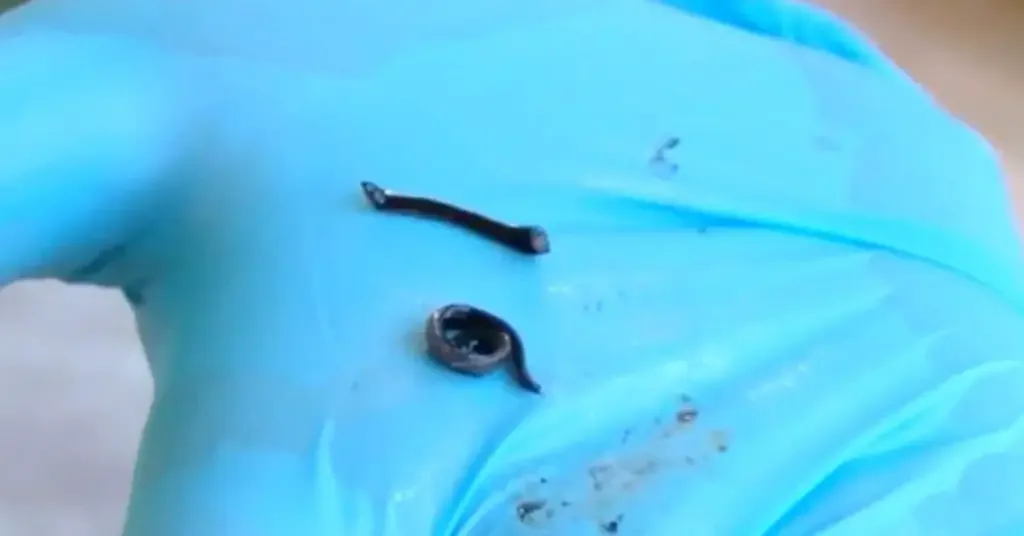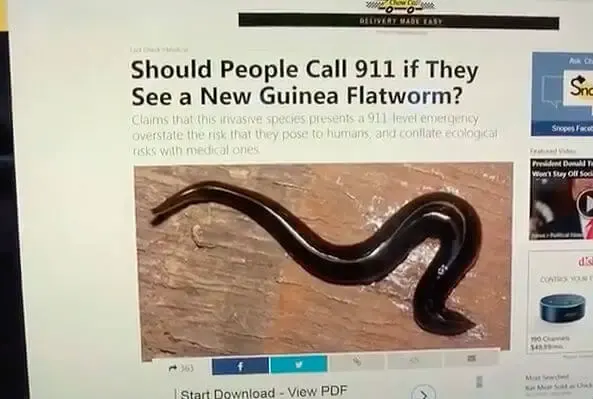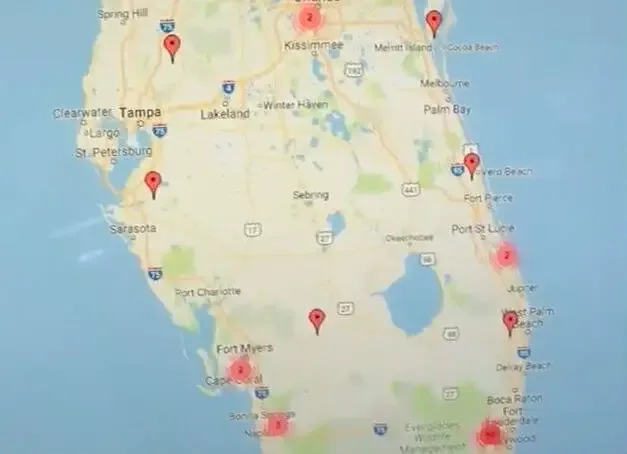For those of us who may not be aware, about two years ago American soil was invaded by the New Guinea flatworm.
Also known by its scientific name as Platydemus manokwari, this worm’s capability to wreck any local biodiversity it comes in contact with has earned itself the reputation of being one of the most invasive species on the planet.
Unfortunately for Americans, it has been found in the gardens of Florida, and likely has spread to other sub-tropical regions of the country.

For those who have an interest in ecology, this is a nightmare.
These worms are ferocious natural predators of land snails, and have been imported to other countries to successfully help control the population of the Giant African snail.
For reference, the Giant African snail lives up to its namesake by being able to reach 7 inches at full length!
Unfortunately for hapless snails, the taste of these worms is completely disgusting to birds, meaning that the worm has no natural predator to keep it in check.
As a result, they can run rampant, devouring local snails and creating a huge decrease in their number.
In some Pacific Islands, it has even been reported that these worms have caused entire snail species to go extinct!

In addition to the loss of local snails (which these worms devour upon without mercy), there is now a new headache for both ecologists and medical professionals alike to deal with – parasites.
As it turns out, the worm is a potential host for a microscopic parasite called Angiostrongylus cantonensis.
Known by its non-scientific name as the rat lungworm, this parasite originates from the rat, who is part of its life cycle. (As the name suggests.)
Upon eating feces passed by an infected rat, the worm too becomes infected.
This parasite can then pass on to other animals such as land crabs, freshwater shrimp, and frogs.

This is of concern to humans because it can also infect us via undercooked or uncooked snails, and sometimes via leafy greens.
Because of this, it is important to wash your vegetables thoroughly and properly cook your meals, in the event that they may be carrying the parasite.
It is also of great importance to note that these parasites can affect other animals as well.
In other words, your pets may be at risk of being infected by this parasite.
Thankfully, the parasite isn’t incredibly dangerous, and in fact is more deadly to the local snail population than to humans or animals.
However, it is best to take some precautions if you spot this worm, which can be recognised by the light, thin stripe that runs down the entire length of its body.
Use gloves or disposable forceps if you must interact with it, and maintain good hygiene.
If you spot one or more of these worms hanging out in your garden, please report it to the Florida Fish and Wildlife Commission, as they are trying to keep tabs on the spread of the worm.
Then, feel free to kill it with salt or boiling water!
